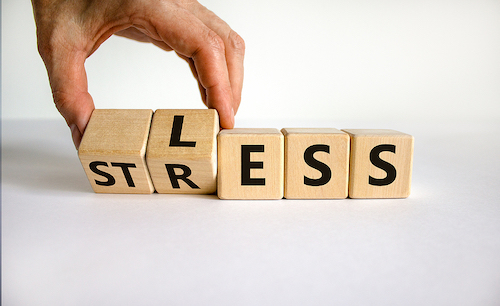 Stress in the United States is at an all time high, according to a poll conducted on behalf of the American Psychological Association (APA).
Stress in the United States is at an all time high, according to a poll conducted on behalf of the American Psychological Association (APA).
The poll showed that top sources of stress for people in the United States were an increase in prices due to inflation, issues with the supply chain, global uncertainty and Russia invading Ukraine.
Two years into a global pandemic, 63% of the adults surveyed also said their lived had been changed forever due to COVID-19.
“The results of the APA poll—if unsettling—are not at all surprising. Given that our nation is still reeling from the effects of a two-year pandemic, exhaustion running high while resilience is running low,” Dr Carla Marie Manly, a Clinical Psychologist based in California told Theravive.
“At a time when Americans are craving stability and a sense of ease, they are being faced with a new host of worrisome issues. For example, given that Americans are already feeling very strained, it is not surprising that 87% of those polled registered ‘significant stress’ due to inflation issues.”
The poll found that 87% of people surveyed were stressed due to price increases for items like groceries due to inflation. 80% were stressed due to the war in Ukraine, and a further 80% feared retaliation from Russia in the form of a nuclear or cyber-attack.
The same poll last year found that stress related to the COVID-19 pandemic caused many to have increased drinking habits and unhealthy changes to their weight.
This year’s survey suggests these behaviors have continued. 47% of respondents said they have become less active since the start of the pandemic and 58% said they have experienced changes to their weight they aren’t happy with.
For those who put on more weight than they were happy with, the median weight gain was 15 pounds and the average weight gain was 26 pounds.
For those who experienced unwanted weight loss, the average weight loss was 27 pounds and the median 15 pounds.
23% said they were drinking more alcoholic beverages during the pandemic, at an average of 10 drinks a week for those who reported drinking more.
Whilst unhealthy coping mechanisms seem to have persisted since the start of the pandemic, Manly says there are healthy ways to cope with issues like inflation, Ukraine and the pandemic.
“It’s unhealthy and largely unproductive to either ignore important issues or obsess over them. In general, the key to mental health is creating a healthy balance that allows for acknowledging and addressing challenges—as well as letting go of the areas over which we have no control,” she told Theravive.
“When you feel anxious and stressed, downregulate your nervous system by pausing to breathe. Four-count breathing (inhaling to a count of four, holding to a count of four, and exhaling to a count of four) is a simple, go-to strategy for easing anxiety and stress.”
When it comes to matters like inflation, she suggests it may be helpful to accept the reality of price increases and modify behaviors accordingly.
“If, for example, price increases at the gas pump are causing you stress, make shifts to share shopping trips with friends, walk or bike when possible, and use public transportation. Any minor adjustments you make will help you feel proactive in the moment, and the benefits will add up over time.”
The poll also identified a significant level of relationship strain among those surveyed. 58% of those surveyed said they had either ended a relationship as a results of a conflict related to COVID-19, or they had experienced relationship strain due to the pandemic.
25% experienced conflicts due to a difference in views on vaccines, and 24% experienced relationship strain to due to difference in views about mask wearing.
Manly has three tips for maintaining healthy relationships during this period of high stress.
“Engage in excellent self-care. When you take care of yourself in simple ways such as going for a walk, carving out time to meditate, or journaling daily, it’s far less likely that you’ll take out your stress on a loved one or friend. Create regular “quiet time” to talk with your partner. When you make it a habit to share time together to talk (both about positive issues and concerns), you’ll avoid the burden of ongoing resentments and backlogged issues,” she said.
“Reach out for professional support now. Many of the partners I work with wait until issues feel explosive or unresolvable, and this makes the work more challenging for them. Reaching out for relationship support is a sign of courage - not weakness. Seeking professional relationship therapy can be the best gift you give to yourself, your partner, and your overall relationship.”
Elizabeth Pratt is a medical journalist and producer. Her work has appeared on Healthline, The Huffington Post, Fox News, The Australian Broadcasting Corporation, The Sydney Morning Herald, News.com.au, Escape, The Cusp and Skyscanner. You can read more of her articles here. Or learn more about Elizabeth and contact her via her LinkedIn and Twitter profiles.